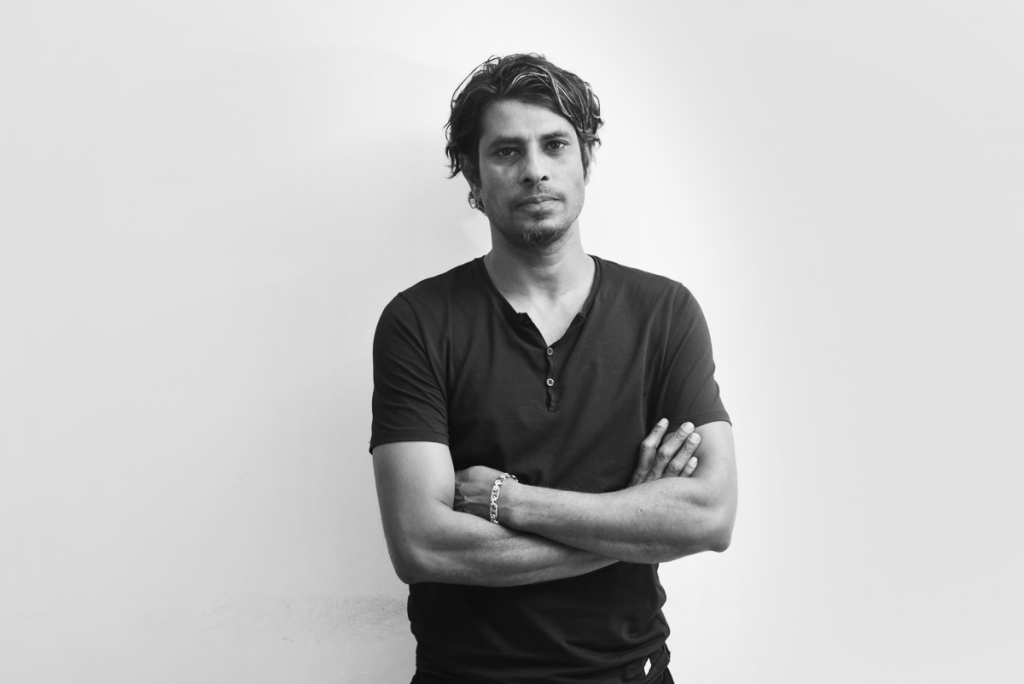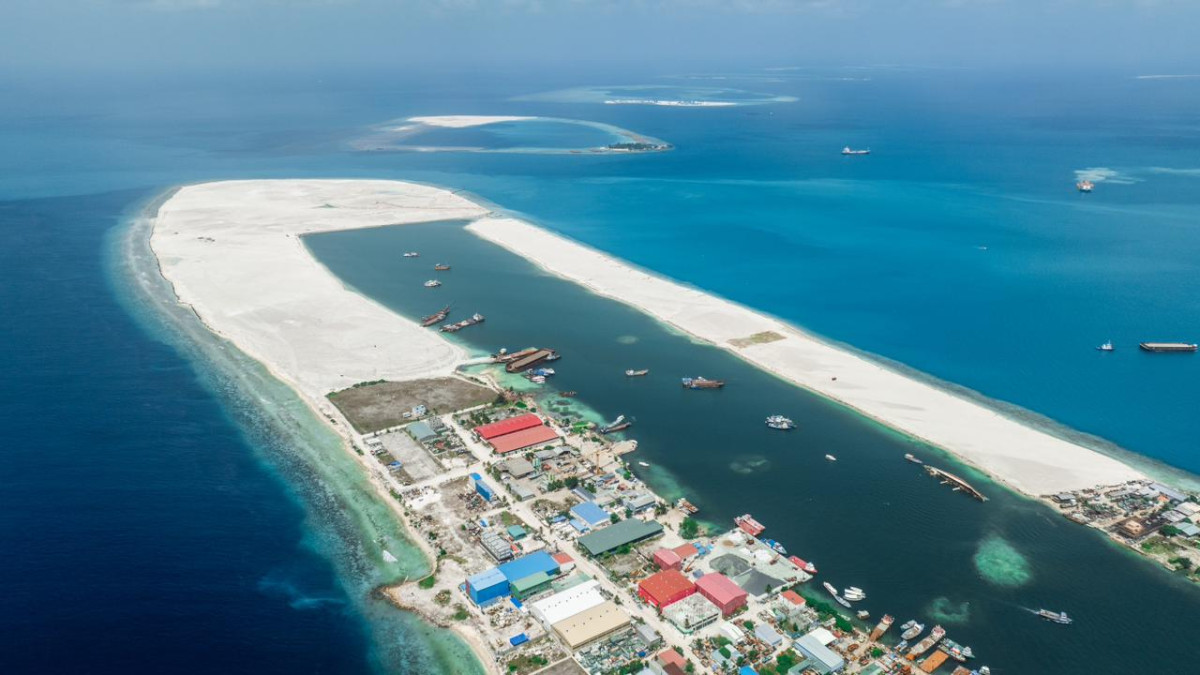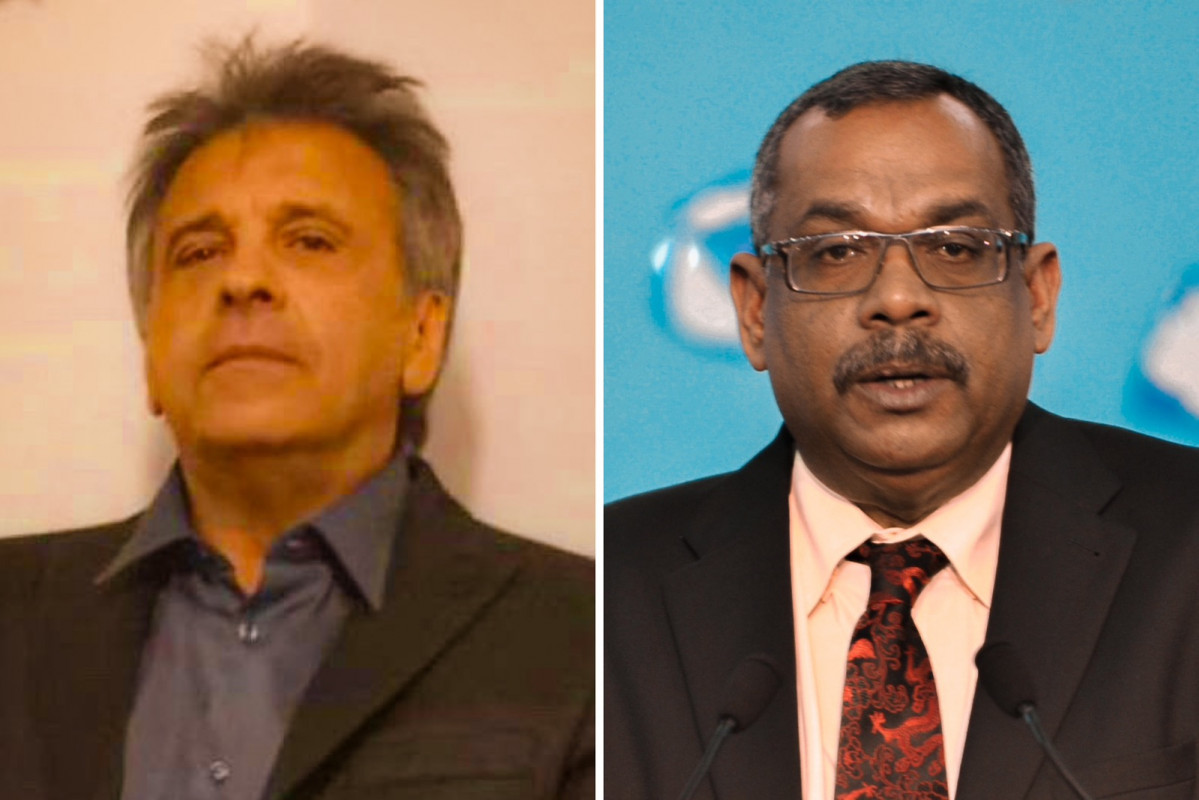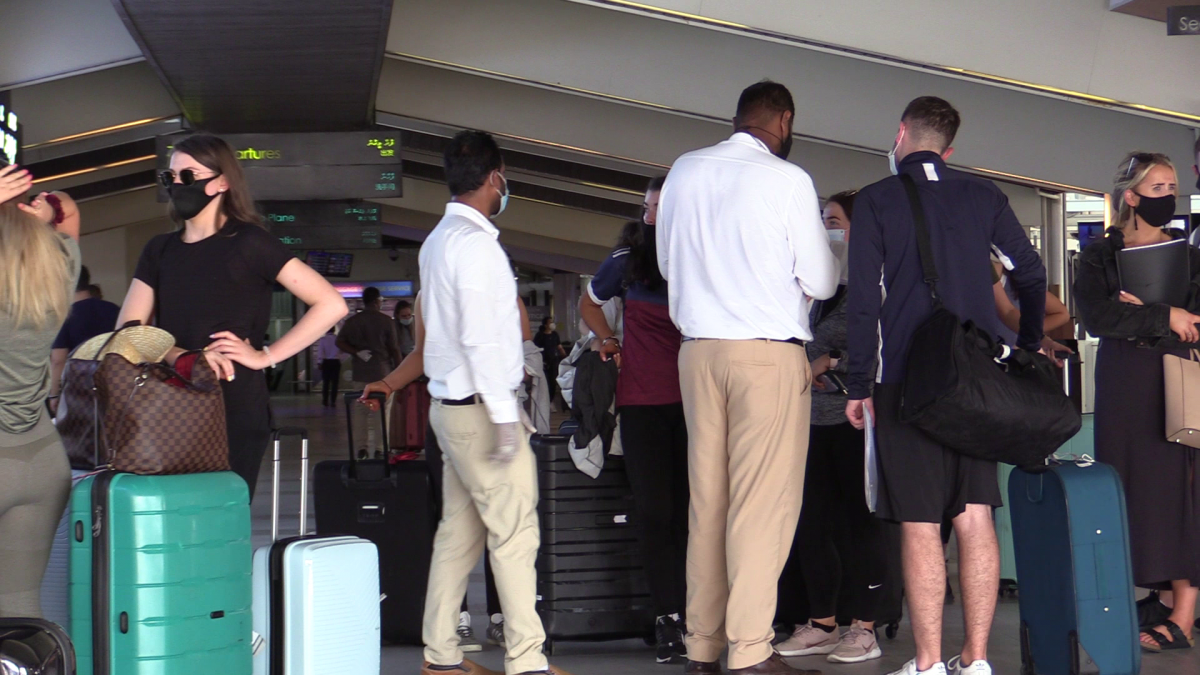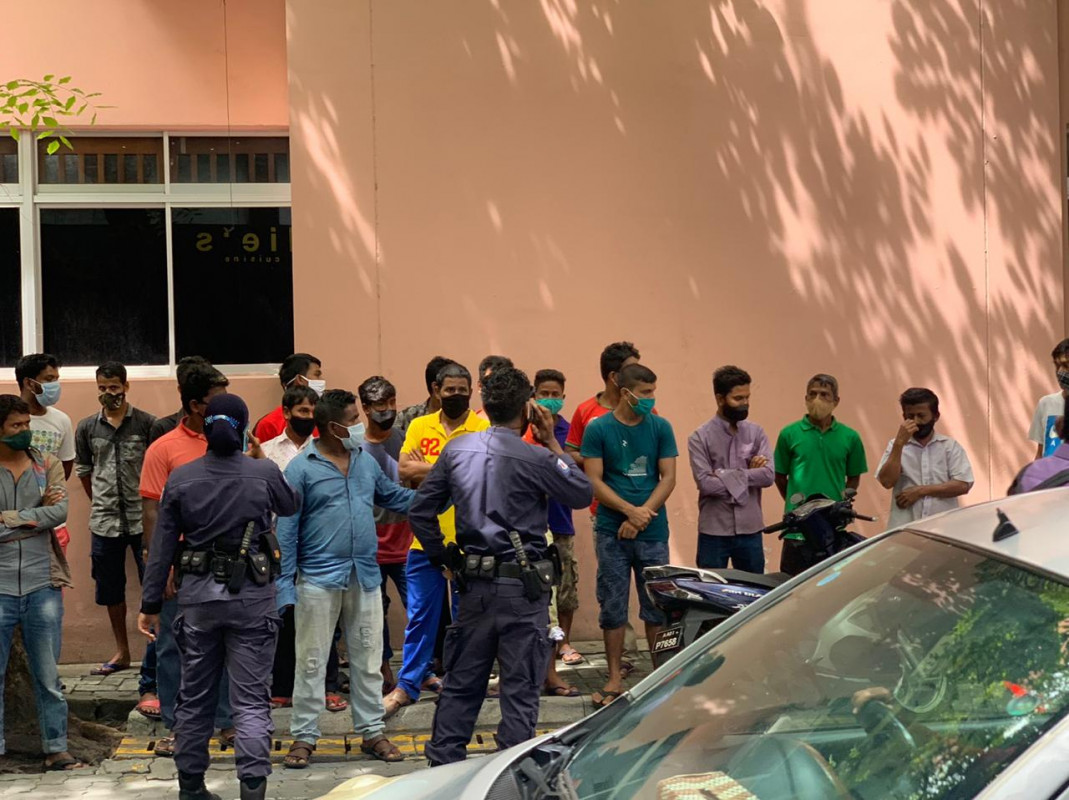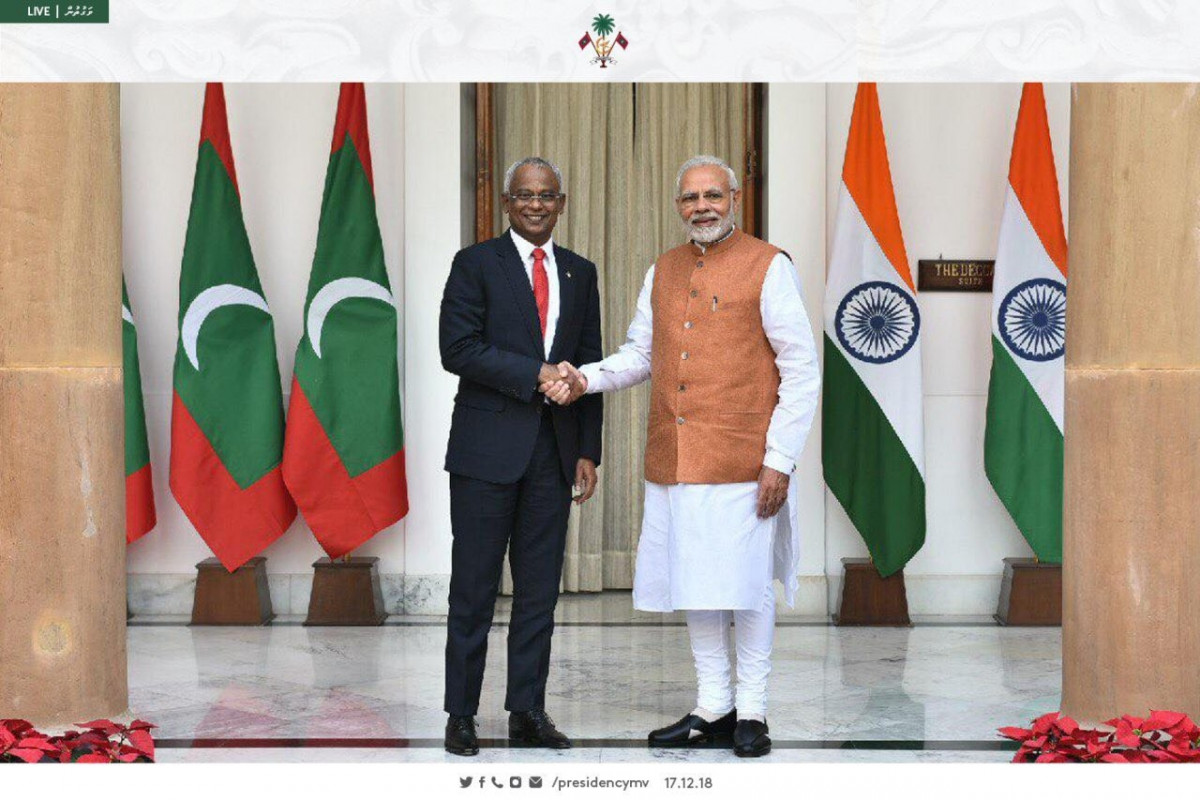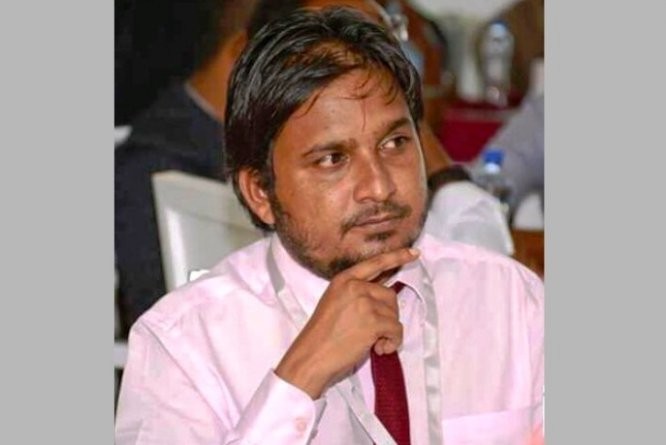Maldives confirms over 400 new Covid-19 cases in 24 hours
Maldives Covid-19 case tally had risen to 98,506

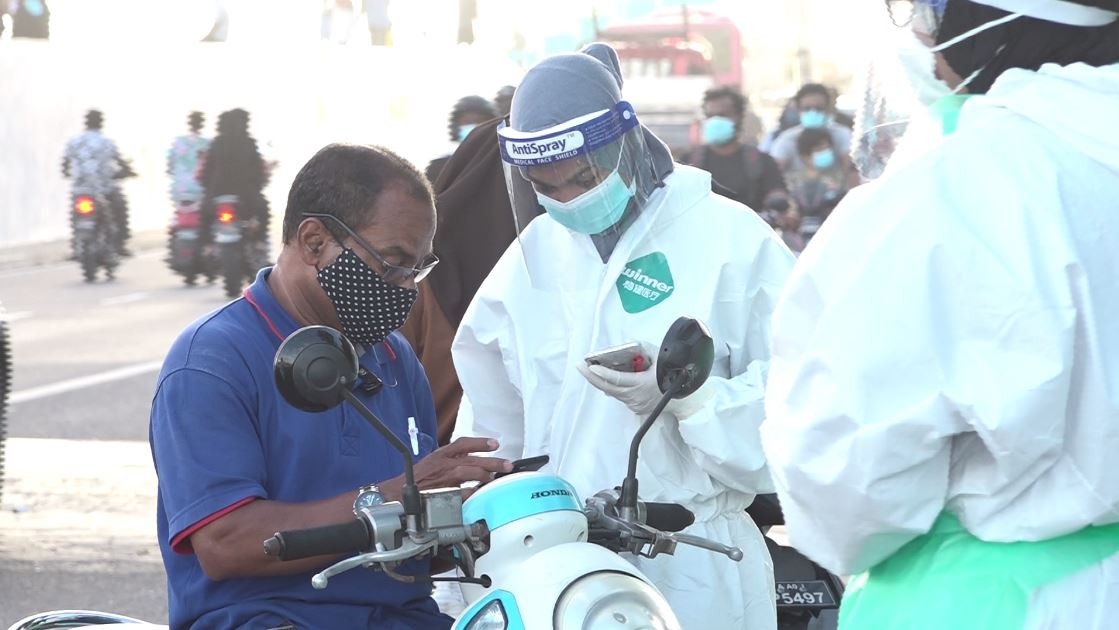
Samples being collected for Covid-19 testing
Maldives has confirmed over 400 new Covid-19 cases in 24 hours.
A total of 454 new Covid-19 cases and 140 additional recoveries were confirmed across the archipelago nation between 6pm Sunday and 6pm Monday, according to the latest figures publicized by the Health Protection Agency (HPA).
Public health authorities tested a total of 4,197 samples for the infection in the reporting period, of which 192 returned positive from the Greater Malé Region, 165 from residential islands outside the capital and 74 from operational resorts. The location of 23 cases from Monday remain undetermined.
By sundown on Monday, Maldives Covid-19 case tally had risen to 98,506, with active cases surging to 3,825 from the previous day’s 3,511.
In the reporting period, 1,984 samples were tested across the capital, where the Covid-19 positivity rate sits at 10 percent as of 6pm, Monday.
The additional recoveries reported have pushed the total number of patients who have recovered from the virus so far across the nation to 94,404.
With the admission of three more patients, 21 Covid-19 patients are currently receiving in-hospital treatment.
Maldives reported its first Covid-19 fatality in April 2020 and since then, the death toll has risen to 264. Two Covid-19 fatalities have been confirmed so far in January 2022.
Although Maldives had maintained the Covid-19 caseload at low daily figures across the capital region in recent months, cases across the capital have been spiking recently. The caseload across the capital has been spiking since New Year’s. As such, it has been eight days since Maldives has been confirming more than 200 daily infections. Due to this, HPA on Sunday tightened safety measures across the Greater Malé Region, effective Monday.
As such, gatherings, events and parties with more than 50 persons are disallowed, with those hosting such gatherings cautioned to follow the guidelines set by the authority. In addition, night and city markets have been prohibited, with sports activities closed off to the public as well. In addition to this, those traveling from the capital region will be required to present negative PCR certification valid 72 hours prior if they have passed 14 days since completing both doses of Covid-19 vaccine.
Further, those who have not completed their vaccine shots will be required to undergo a mandatory quarantine period of 14 days and will only be released upon a negative PCR result.
HPA stated that those who travel to islands from the capital in the next two days have the options to take a sample, travel and stay in quarantine until their results are obtained or to travel and stay in quarantine until tests are done and results are obtained.
The public health authority revealed that sample collection centers will be open at Thaajuddeen School, Villimalé and FAM building. The sample center at Social Center was relocation to Thaajuddeen School and a new one was opened at the FAM building due to growing demand following the travel restrictions.
At a time the caseload has been spiking, the island nation recently celebrated the New Year, where large groups of people thronged the capital’s suburbs and other regions to welcome the new year. It is to be noted that the caseload hiked following the New Year last year as well.
The public has been urged to get vaccinated, adhere to guidelines set place in hosting events and gatherings and even in the work environment to prevent the risk of widespread infection.
Maldives confirmed the first case of the new, more transmissible variant of Covid-19, ‘Omicron’ on 5 December 2021. Since then, the public health authority has revealed that more cases have been surfacing.
Research indicates that those who have recovered from Covid-19 are at a high risk of contracting the new variant, dubbed a “variant of concern” by the World Health Organization (WHO).
The country has been in a state of public health emergency for nearly two years now, since 12 March 2020. It was extended a 22nd time to expire on January 29.
